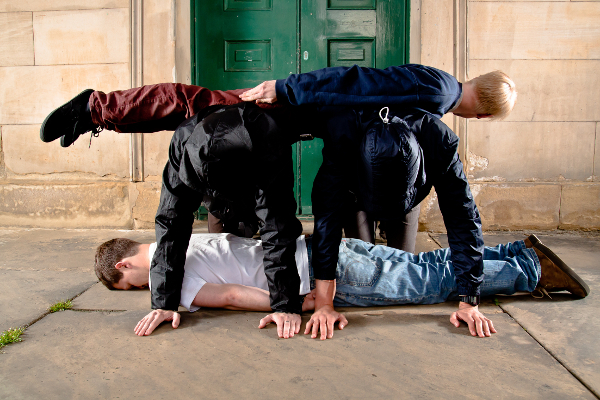
INTERVIEW: ALT-J (CAMBRIDGE)
Back at one of the [PIAS] Nites here in Paris, Alt-J was sold out. Every disc.
They weren’t even performing. Nor there. Sold out. All of them.
Since the video of “Breezeblocks” began circulating, the Leeds/Cambridge group’s album An Awesome Wave has been the talk of France and the United Kingdom. It will be released in America on September 18th via Canvasback Music, and is an absolute must even for the “Here, please take me” packaging that offers the CD to you through clever folding. It’s hard to describe their sound-many people citing Radiohead-but needless to say, after being lucky enough to be in Europe where it’s already available, y’all better get on this disc when it comes out. While waiting, do your damnedest to make it to their US tour dates. They’ll be in Los Angeles, August 1st at The Echo. More tour dates at the end of the interview. Many thanks to Gwil Sainsbury, the bassist and guitarist, for his time. [And all apologizes for the delay. Happens when your hard drive hemmorages, taking everything with it for weeks on end.]
I hear that you’ve been generating quite a bit of buzz lately in the UK, to put it lightly, with being played on Radio 1 and playing several summer festivals. Has this all started to sink in?
Not really. We’ve been too busy to really sort of put your head up and look around and see what’s going on and sort of have any idea where you’re at because you’re too busy. To make it to the next place, to check into the next hotel, to sort of orientate yourself. We still don’t really feel like we’re a real band. We’re still waiting for that moment when you feel like, “Hey, we’re a professional band now” and if that even ever happens. There are moments when you have a big landmark of being in a band. It’s quite a funny thing considering yourself a professional musician because I didn’t know anything about music theory. So it’s quite strange. I know how to play the record but not much outside of that musically. [laughs] I’m in the strange sort of place of being the amateur musician in the band.
You all studied in Leeds, and you studied Fine Arts?
Three of us studied Fine Arts and Gus, the keyboard player, studied English Literature.
How did it start then in Leeds? How did you get together and have things click?
There wasn’t too much ambition in it. We’d been writing songs for a few years but we hadn’t really performing in front of anyone. We were freshmen and we sort of started working on some recordings in Garageband that were pretty awful. We were really interested in hanging out and making little recordings. We really didn’t think much of doing it. In the second year, we met Gus and Thom, the keyboard player and the drummer, and we just got along really well. We let them know if they were interested in doing anything because we knew that they played instruments. We just spend a lot of time hanging out in my bedroom at university. We had a tiny little drum kit-kick and snare, a tiny little bass amp, and a keyboard that was sort of stolen from school. It was more about hanging out as friends and making sounds, I suppose. There wasn’t any intention of being in a band. Just enjoying it and enjoying each other’s company.
At one point, apparently you didn’t own any amps. Has that changed at all?
Yea. We’ve heard that a few times. We don’t know where that came from. We’ve had one amp at least. We never spent money on equipment because we never had the intention of being a band. Making tracks only in our spare time. We had one amp for the keyboards, then we stopped using it because it was too bad. For about a few months, we didn’t have any amps. It was more about that we didn’t have any intention about sorting it out because we didn’t have any money for a short period of time.
What was it like at your first gig, which sounded like an open mic jam session than a proper gig? Did people catch on that there may be something there?
The first gig we played was in our lounge in second year. All of our friends knew that we were making music, but they didn’t know what the deal was so we decided to put on our first gig. The first gig was pretty scary, but I think if we had played that gig and the response of our friends had been very apathetic on a “yeah, it was good” sort of thing but not wow’d by it, I think we would’ve gone at it for another couple months before holidays and stopped. Our friends made us take it more seriously because we had recognition from our peer group of what we were doing. To us, it really made us aware that others were interested in us. Quite a few people seemed to find our music interesting as well, but it wasn’t intentional. It was just hanging out as friends and making something.
It was really hard to tell as well, because people who came to our gigs were friends. We were the only band in our group of friends that there was. So it was something you’d go and see on Tuesday night. It was hard to sell. We didn’t get any sort of big fan following or anything. We were pretty low-key. The gigs that we did play were poorly organised.
How is the local scene like in Leeds for musicians? What’s the general feeling?
There’s an idea that Leeds has a healthy music scene. I suppose it does but it was something we never were really part of. We weren’t really interested in being part of any sort of music scene in Leeds because we never really found one that had to do with what we wanted to do. We were more part of uni bands that played house parties and things like. It didn’t really feel like a scene. It felt more like college or university where that was the sort of thing that happened. We certainly weren’t really aware of any scene that we would want to be apart of. The only band that we met in Leeds that we really got along with was a band called The Peppermint Lounge, who broke up a year ago. They were basically a lot, lot better than us. We heard their stuff on local radio. We basically were like, “Who are these people?” [laughs] We became really, really good friends with them and we still are really good friends with them.
What we do have in Leeds is a massive student population that are really supportive of live music. So you get that culture of people wanting to make bands because there’s this infrastructure in place to support you doing that. But I think that’s fairly common in university cities.
I also think if we had been studying music, it would have been a different situation for us. Because we were studying art, we didn’t only hang out with musicians and didn’t have that sort of scenario for making a band. I think music students have a lot more informed scene.
How is it working with Charlie Andrew, your producer? You were recording in your room before, so what did he teach you in trying to capture your music?
Charlie is actually the only producer we ever worked with. So we definitely wouldn’t really know what it would be like to work with another producer, because we haven’t done it. We met him through a mutual friend. We recorded the track for the album, “Matilda,” about three years ago, and that’s the same recording that’s on the album. So basically, he went to uni and he was sort of establishing himself as a producer. He would do it for free around his spare time. So we would come down to London and record with him just one track at a time around his schedule. We’d go back [to Leeds] and that went on for 2 or 2 ½ years. And I think as with him as an experienced musician, and a drummer himself, I think what we find quite interesting is the percussion and not just drums but every instrument that’s going on. He’s really into that. He has a really great understanding. His production skills as a whole are pretty incredible.
I think he taught us a lot about space, and leaving space in recordings. When you’re a young band, you may want to layer things because you’re a bit insecure about what you’re making. I think he taught us that space between notes is just as important as the notes themselves. That had quite an effect on us recording the rest of the album because it had this minimal approach. It was an approach a bit from our art backgrounds where you’re going into the recording and you can’t justify why it’s there. If you haven’t got a great reason for it being there, it’s taken out so it’s not taking away from anything else. I suppose he encouraged us to be more disciplined in how we approach the music.
Joe writes something on acoustic guitar and brings it to us. Each of us in turn comes up with a part. We’re all sort of free to criticize each other as much as we wanted. We write our parts and continue until we’re happy with our parts and each of the other’s parts. If we’re not happy with each other’s parts, we’ll allowed to let it be noticed. Whenever you get into the recording studio, we present it to Charlie and he’s the most disciplined filter there is. It’s just a really great working process to have these five people, all with different ideas of how it should turn out. Then getting to the point where you agree and find it interesting. That’s why we have a great working relationship between all of us.
You’re right. I was shocked because there was a certain discipline that you don’t find on debut albums at all, or even in established artists. They don’t use sound as you use sound. You used interludes, which you don’t see often, but they work extremely well. How have you, with the interludes and the space, translated the recordings into your live sets?
Yea, which is a bit scary! There’s some tracks on the album that are really great live for an attentive audience. Tracks like “Dissolve Me” with acapella bits that last quite a long time. If you’ve got a crowd that isn’t there to see you because you’re supporting someone else, it’s a song that’s sort of hard to play live. Each time you play live, you adjust your set list according to the context of where you’re playing. Sometimes we adjust it to how the crowd is reacting because we might have a track that’s very quite like “Hand-Made” that we wouldn’t play at a festival because the people are too drunk or don’t have that sort of energy. In playing live, our approach was to play it as closely to the album as we can get without ever having a backing track. I think that’s the problem nowadays, people create these epic albums and when it comes to playing it live, you’re forced to think about how expensive it will be and going to a backing track for the textures. We really didn’t want to do it, so we had to spend a really long time on how to approach each part.
[laughs] A lot of that responsibility falls on Gus, the keyboard player, because he can do things with two hands while Joe and I play guitar and can only do one thing at a time. Playing two keyboards at the same time, or singing at the same time, or going between that and a maraca for some extra percussion. So we got a complicated set, especially for Gus above all of us and Thom with his drum kit putting extra things in there that you might use for one song, because that’s how it is on the album. It’s all about re-creating the album and putting on an interesting show.
You have the American tour coming up next, and you’re playing Fuji Rock. What’s been the best reaction from family or friends for all of this?
We went to America a month or a couple months ago for the first time ever, and that was a sort of wake up going to America as a British band. Combining that with the trip to Japan, it’s hard enough for it to sink in for us because we were so busy. We didn’t have much time to realize what was going on, so it feels like it’ll be like another flight and a lot more excitement. I think it’s more weird for your friends and family that you’re going off and doing things like that. It’s really surreal for us, but I think it’s more surreal for mom I think.
So, An Awesome Wave is coming out in September in the US. Any suggestions for how Americans should spend their time waiting for the release?
[laughs] Let me think. [laughs] I would say go on YouTube and let YouTube guide you around different things to do with us. Go on an Internet trip. The Peppermint Lounge. There’s another guy to check out called Romare. He just released a really great EP called “Meditations.” It’s really interesting. He’s sort of post-dubstep world music. It’s very sample heavy with many different influences. They’re a great band to check out. And all The Peppermint Lounge stuff is on MySpace to check out!
Is that why you started Alt-J? To help make The Peppermint Lounge get back together by having everyone listen to them?
[laughs] I hope so! I saw one of the guys a week ago. I said if we ever made enough money to have our own record label, I would definitely sign The Peppermint Lounge right away!
Thank you very much!
US Tour Dates:
8/1 – The Echo, Los Angeles, CA
8/2 – Popscene at Rickshaw, San Francisco, CA
8/5 – The Empty Bottle, Chicago, IL
8/6 – Mercury Lounge, New York, NY
8/7 – Glasslands, New York, NY
9/12 – The Bowery Ballroom, New York, NY
9/14 – Johnny Brenda’s, Philadelphia, PA
9/15 – The Rock N Roll Hotel, Washington, DC
Founder, Editor, Writer, Photographer. (Austin, Texas)
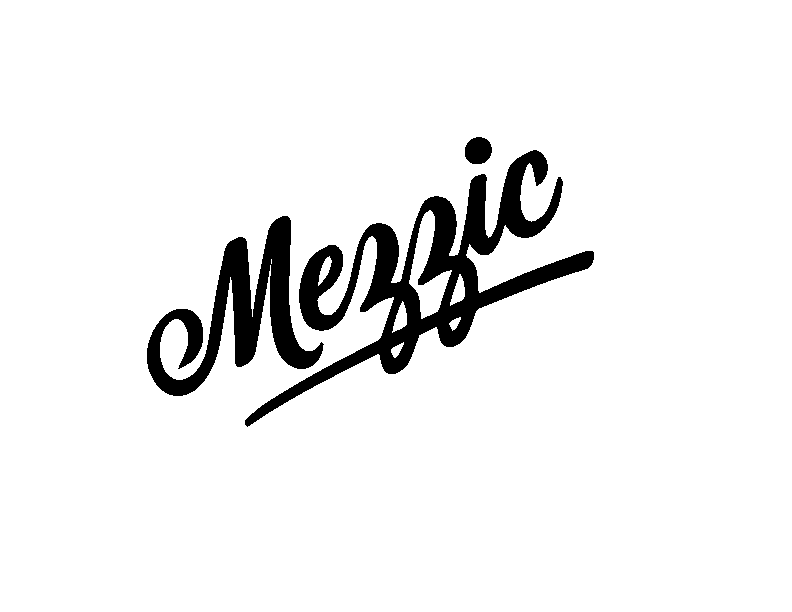
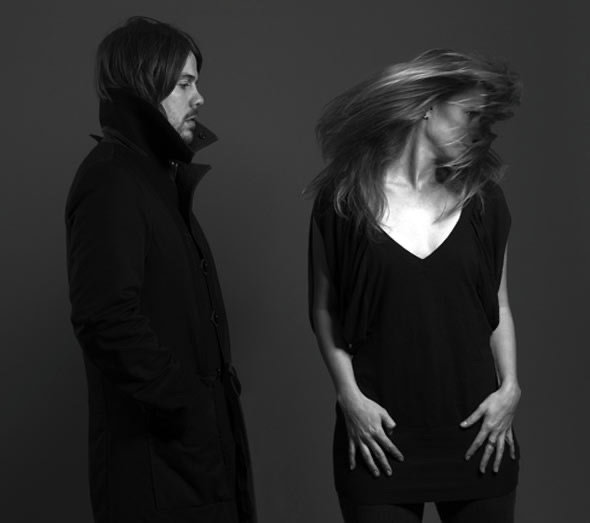
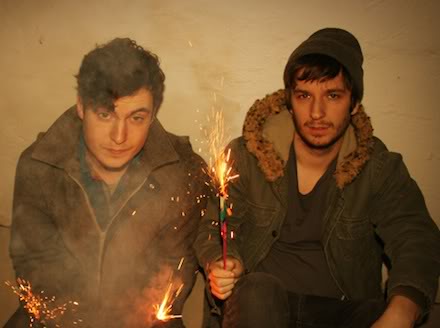
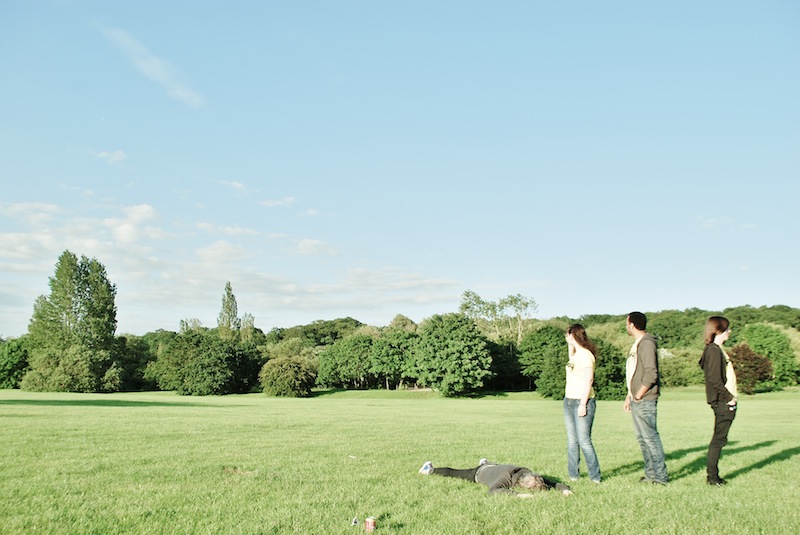
Post a comment